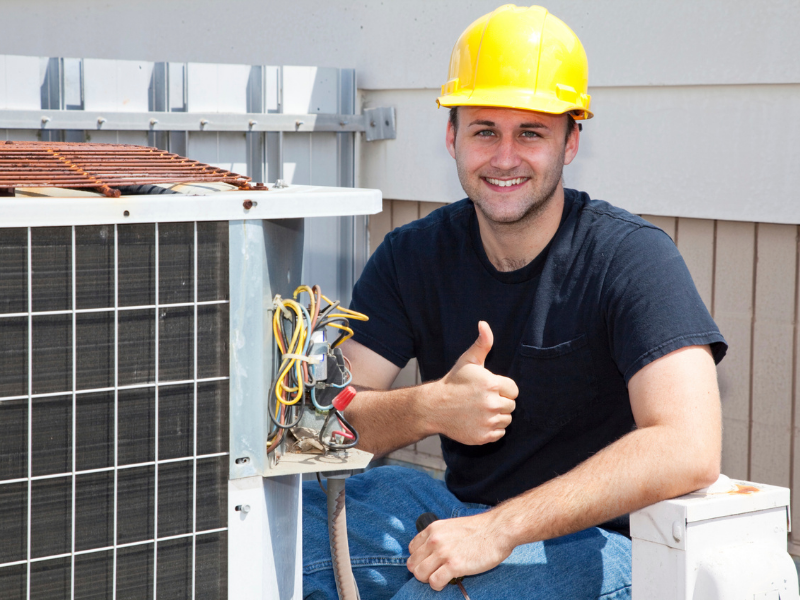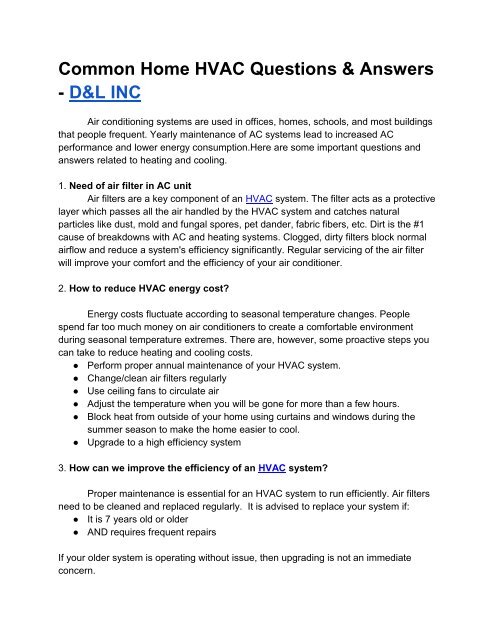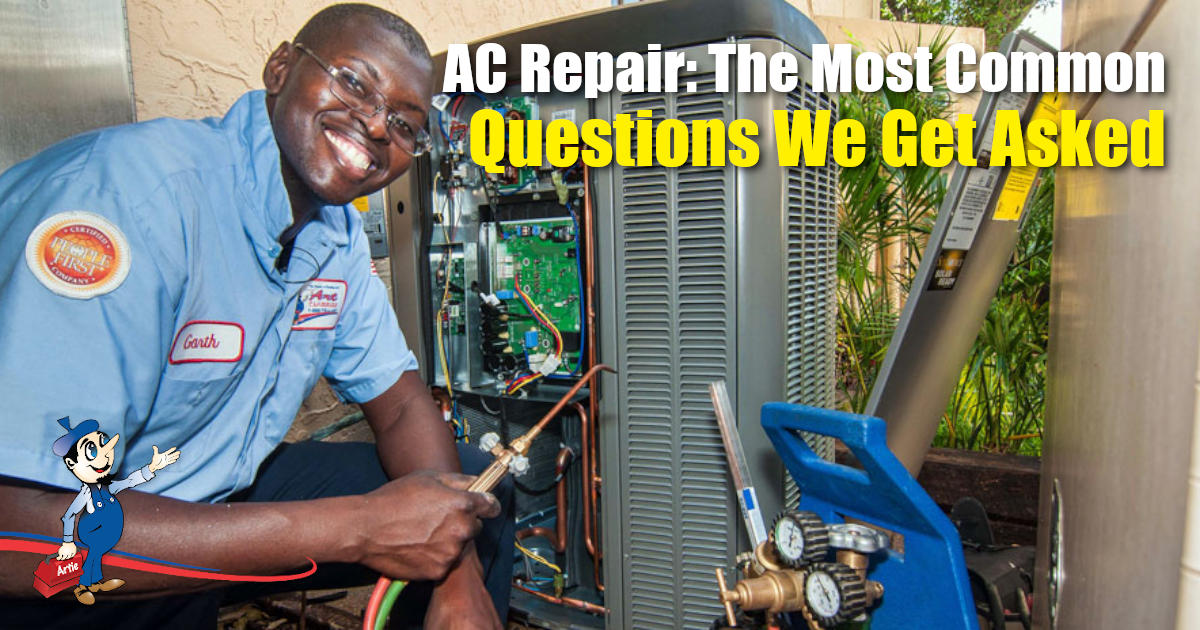Are you curious about HVAC repair? Look no further! In this article, we will address some frequently asked questions about HVAC repair. Whether you’re experiencing issues with your heating, ventilation, or air conditioning system, we’ve got you covered. From common troubleshooting tips to understanding the importance of regular maintenance, we’ll provide you with all the essential information you need to know. So, let’s get started and demystify the world of HVAC repair!
1. What is HVAC?
HVAC stands for Heating, Ventilation, and Air Conditioning. It refers to the technology that is used to control the indoor environment by regulating the temperature, humidity, and air quality in residential, commercial, and industrial buildings. HVAC systems are essential for maintaining a comfortable and healthy living or working space.
The heating aspect of HVAC involves the use of a furnace or a boiler to provide warmth during cold weather. Ventilation ensures the circulation of fresh air in and out of the building, removing contaminants and odors. Lastly, air conditioning helps to cool the indoor air during hot summer months, creating a comfortable environment.
2. Why is HVAC repair important?
HVAC systems are complex and require regular maintenance and repair to ensure optimal performance. Regular HVAC repair is important for several reasons:
Efficient operation: Regular maintenance and repair help to keep HVAC systems running efficiently, leading to lower energy consumption and reduced utility bills.
Longer lifespan: Proper maintenance and timely repairs can extend the lifespan of HVAC systems, saving you the cost of premature replacement.
Indoor air quality: HVAC systems play a crucial role in maintaining good indoor air quality by removing pollutants and allergens. Regular repairs ensure that the filters and other components are functioning properly, preventing the circulation of contaminated air.
Comfort: A broken or malfunctioning HVAC system can create an uncomfortable indoor environment. Prompt repairs help to restore comfort by ensuring that the temperature, humidity, and air quality are maintained at desired levels.
3. How often should HVAC systems be repaired?
The frequency of HVAC repairs depends on various factors such as the age of the system, usage patterns, and maintenance history. However, it is generally recommended to have HVAC systems inspected and serviced at least once a year. This regular maintenance can catch any potential issues before they escalate into major problems.
For older systems or those that are heavily used, more frequent inspections may be necessary. It is also important to replace filters regularly, typically every 1-3 months depending on the type of filter, to maintain optimal performance.
4. What are the common signs that indicate the need for HVAC repair?
There are several warning signs that indicate your HVAC system may need repairs:
Uneven heating or cooling: If some areas of your home or building are consistently warmer or cooler than others, it may indicate a problem with the HVAC system.
Restricted airflow: If you notice that the air coming from your vents is weak or there is reduced airflow, it could indicate a clogged filter, ductwork issues, or a problem with the blower motor.
Strange noises: Unusual noises such as grinding, squealing, or rattling coming from your HVAC system can be a sign of a mechanical problem that needs attention.
Increased energy bills: A sudden increase in utility bills without any significant changes in usage may indicate that your HVAC system is not operating efficiently.
Frequent cycling: If your HVAC system is turning on and off frequently, it could be a sign of a faulty thermostat, an airflow issue, or a problem with the compressor.
Bad odors: Unpleasant odors originating from the HVAC system could be an indication of mold or bacteria growth, or a problem with the condensate drain.
If you notice any of these signs, it is advisable to contact a professional HVAC repair service to assess and address the issue.

This image is property of atelair.ca.
5. Can I do HVAC repair myself?
While there are some basic maintenance tasks that homeowners can perform, such as regularly changing filters and cleaning vents, most HVAC repairs are best left to trained professionals. HVAC systems are complex and require specialized knowledge and tools to diagnose and fix problems effectively.
Attempting to repair the system yourself without the necessary expertise can lead to further damage or even safety hazards. Moreover, improper repairs can void warranties and end up costing you more in the long run.
It is recommended to hire a licensed and certified HVAC technician who has the skills and experience to accurately diagnose and repair HVAC issues. They will ensure that the repairs are done safely and effectively, helping to extend the lifespan of your system.
6. How much does HVAC repair typically cost?
The cost of HVAC repair can vary depending on the nature of the problem, the parts required, and the labor involved. Minor repairs such as replacing a capacitor or a clogged filter may cost less, typically ranging from $75 to $250.
However, more significant repairs, such as replacing a faulty compressor or a heat exchanger, can cost several hundred to a few thousand dollars. The cost can also increase if the repair requires specialized equipment or if there are additional issues discovered during the inspection.
To get an accurate estimate for HVAC repair, it is recommended to contact reputable HVAC repair services and request a detailed quote based on your specific needs.
This image is property of www.mastermechanical.net.
7. How long does HVAC repair take?
The duration of HVAC repairs can vary depending on the complexity of the issue and the availability of parts. Minor repairs can often be completed within a few hours, while more extensive repairs may take a day or more.
In cases where a replacement part needs to be ordered, the repair timeline may be extended until the part arrives. HVAC repair services will be able to provide a more accurate estimate of the repair duration once they have assessed the problem.
During the repair process, it is important to communicate with the HVAC repair service to understand the estimated time frame and any potential disruptions to your daily routine.
8. What are the different types of HVAC systems?
There are several types of HVAC systems commonly used in residential and commercial buildings:
Split systems: Split systems have both an indoor and outdoor unit. The indoor unit contains the evaporator coil, which is responsible for cooling or heating the air, while the outdoor unit houses the compressor and condenser coil. Split systems are versatile and can be used for both heating and cooling.
Packaged systems: Packaged systems have all the components, including the compressor, condenser, and evaporator, contained in a single unit. These units are typically installed on the roof or in other outdoor locations. Packaged systems are commonly used in commercial buildings and mobile homes.
Ductless mini-split systems: Ductless mini-split systems are similar to split systems but do not require ductwork. They consist of an outdoor unit connected to one or more indoor units mounted on the wall or ceiling. Ductless systems offer flexibility in zone cooling and heating, making them suitable for individual rooms or areas.
Geothermal systems: Geothermal systems utilize the stable underground temperature to provide heating and cooling. These systems circulate water through pipes buried underground, where it absorbs or releases heat before being pumped into the building. Geothermal systems are energy-efficient and environmentally friendly.
Each type of HVAC system has its own advantages and considerations, and the choice will depend on factors such as the size of the space, budget, and climate.

This image is property of img.yumpu.com.
9. Do HVAC repairs come with a warranty?
Yes, HVAC repairs typically come with a warranty. The length and coverage of the warranty can vary depending on the repair service and the specific parts being repaired or replaced.
Most reputable HVAC repair services provide a warranty that covers the parts and labor for a certain period of time, usually ranging from 30 days to a year. This warranty ensures that if the repaired component fails within the warranty period, the repair service will fix it at no additional cost.
It is important to discuss the warranty details with the HVAC repair service before engaging their services. Understanding the warranty terms will help you make an informed decision and provide peace of mind regarding the quality and durability of the repairs.
10. How can I find a reliable HVAC repair service?
Finding a reliable HVAC repair service is essential to ensure that your repairs are done correctly and efficiently. Here are some steps you can take to find a reputable HVAC repair service:
Research online: Look for HVAC repair services in your area and read customer reviews and ratings. Websites and online directories can provide valuable information about the company’s reputation and customer satisfaction.
Ask for recommendations: Seek recommendations from friends, family, or neighbors who have recently had their HVAC systems repaired. Their firsthand experiences can help you find trustworthy repair services.
Check credentials: Ensure that the HVAC repair service is licensed, insured, and accredited by professional organizations. These credentials demonstrate that the service meets industry standards and adheres to safety guidelines.
Request quotes: Contact multiple HVAC repair services and request detailed quotes for the required repairs. Compare the prices, but also consider the reputation, experience, and customer service offered by each service.
Inquire about warranties: Ask about the warranties offered by the repair services and ensure that they provide coverage for the repaired components.
Verify experience and expertise: Inquire about the experience and expertise of the technicians who will be performing the repairs. Skilled and knowledgeable technicians will be able to diagnose and fix problems effectively.
Once you have considered these factors and selected a reliable HVAC repair service, schedule an appointment for them to assess your system and provide a detailed repair plan.
In conclusion, HVAC repair is important for maintaining comfortable and healthy indoor environments. Regular maintenance and timely repairs can optimize the performance of HVAC systems, extend their lifespan, and improve indoor air quality. While some basic maintenance tasks can be performed by homeowners, most HVAC repairs require the expertise of trained professionals. The cost of HVAC repair varies depending on the complexity of the issue, and the duration of the repair process depends on the specific problem and the availability of parts. There are different types of HVAC systems to suit different needs and environments, and each repair typically comes with a warranty. To find a reliable HVAC repair service, research online, seek recommendations, check credentials, request quotes, verify experience and expertise, and inquire about warranties. By following these steps, you can ensure that your HVAC repairs are done by competent professionals, providing you with a comfortable and efficient indoor environment.

This image is property of www.artplumbingandac.com.
The post Frequently Asked Questions About HVAC Repair appeared first on Diamond Air Design.

